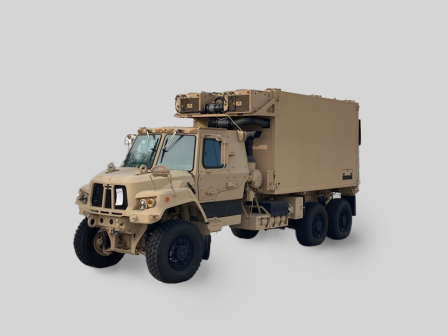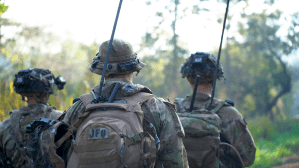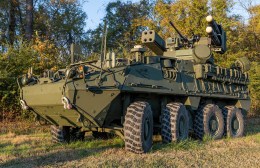Army to explore predictive analytics and autonomous systems for Indo-Pacific logistics

Army Secretary Christine Wormuth has asked Army Materiel Command’s Gen. Edward Daly to lead a comprehensive effort to strengthen the branch’s capacity to provide logistics and sustainment in support of the joint force in the Indo-Pacific region by using predictive analytics and autonomous systems, among other things.
With aims to “embrace the challenge of contested logistics,” Wormuth said Monday at the Association of the United States Army’s annual convention in Washington, the command will soon leverage experimentation, war games, and exercises in new ways.
“This effort will bring together our logistics community with the commercial sector to look at our requirements and focus on the opportunities presented by autonomous distribution, energy-efficient combat systems, and predictive data analytics,” she explained.
Wormuth’s comments Monday came as the Army recently announced big plans to become a more data-centric force operationally by the end of the decade.
Some progress has been made in prototyping and building new technologies with military and commercial partners over the last year, in particular, according to the secretary. She noted that her team is “already signing contracts to begin low rates of initial production” on some emerging technologies associated with logistics.
During a media briefing after her keynote, Wormuth provided reporters with more details on this new command-led work.
The Indo-Pacific “is the most demanding theater” for the military currently, she noted, “because of the distances involved, and all of the, you know, obvious reasons,” she said, likely referring to the evolving conflict landscape and tensions with China. She sees room for better collaboration with industry and a need to explore how automation and predictive analytics can support such logistics and sustainment operations.
“We are doing more and more every day to use data more effectively,” Wormuth told DefenseScoop during the briefing — but she confirmed that she is not yet satisfied with how the service is using data as a strategic asset.
“I see it in all sorts of ways. Army Materiel Command, I think, has done a tremendous job to really improve our ability to see our inventory of infrastructure, for example, using data. I was just over in Germany with the 18th Airborne Corps, and the way that we’re using data and [artificial intelligence] there is tremendous,” she noted. “But, you know, we have so much more to do, especially when you compare us to the private sector.”






